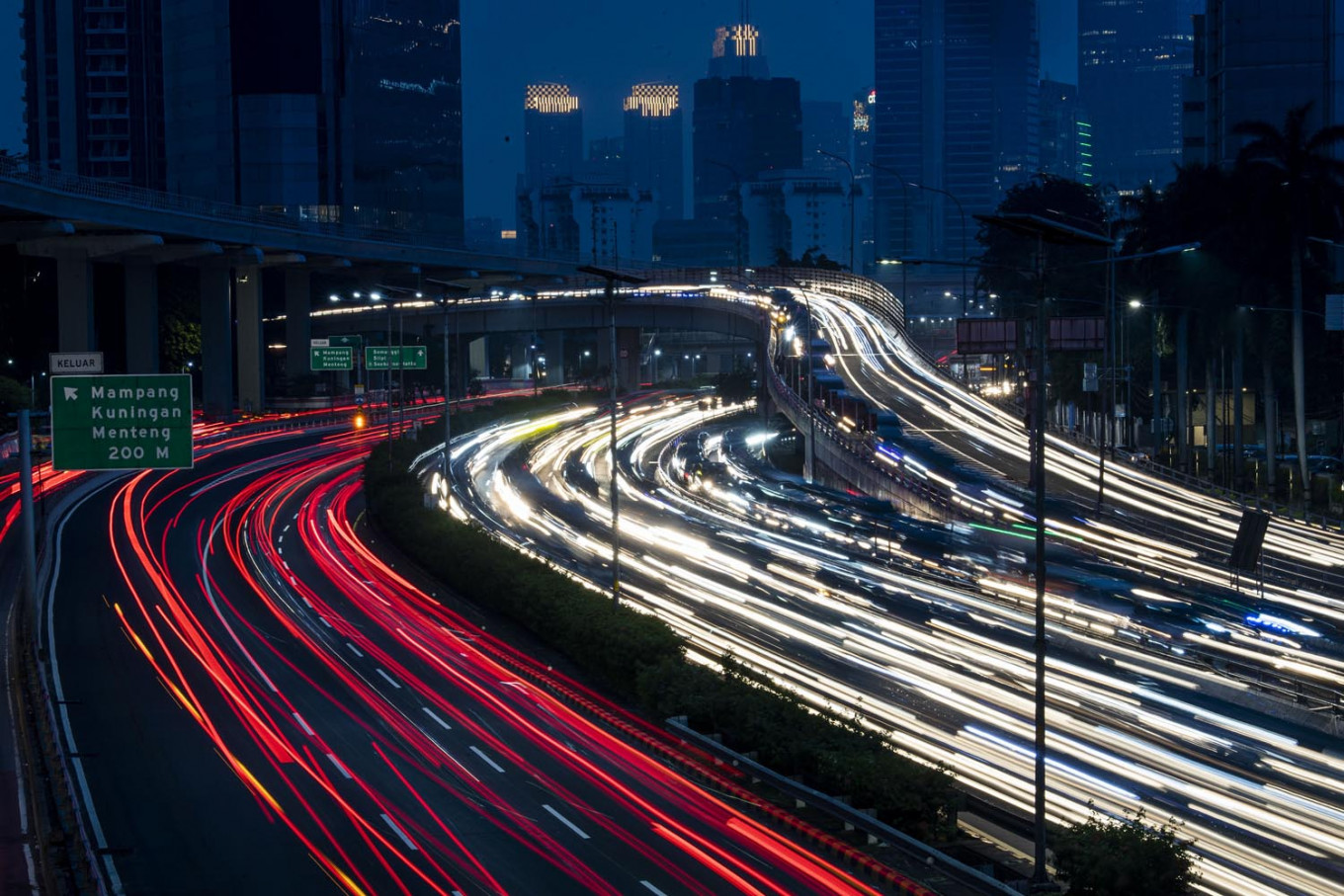Popular Reads
Top Results
Can't find what you're looking for?
View all search resultsPopular Reads
Top Results
Can't find what you're looking for?
View all search resultsNightclubs torn between income, public health
Nightlife businesses are caught between a rock and a hard place. They are aware that reopening entertainment places during the ongoing epidemic increases the risk of new infections in the city, but many working in the industry are losing income.
Change text size
Gift Premium Articles
to Anyone
T
hree months ago, professional DJ Ganarjito Abirowo was still performing at multiple nightclubs in Jakarta. Under the stage name of Jidho, he used to perform five nights a week, making a name for himself as a sought-after DJ in the capital.
However, the coronavirus pandemic has turned his life upside down.
As nightclubs went into a temporary shutdown after Jakarta imposed the large-scale social restrictions (PSBB) in April, Jidho has not only been unable to channel his passion for music, but he also experienced a financial downturn.
His monthly revenue had plunged by roughly Rp 50 million (US$3,571) in the last two months, he said, without revealing his earnings now. The situation has forced him to start a culinary business offering home delivery to stay afloat.
But Jidho was well aware that putting nightclubs on a temporary hiatus was important to help reduce the COVID-19 spread in the capital.
The nightlife industry is caught between a rock and a hard place. They are aware that reopening entertainment places during the ongoing epidemic would increase the risk of new infections in the city, the epicenter of the outbreak in Indonesia, but many working in the industry are losing income.
They now urged the Jakarta administration to provide certainty on whether they can resume business to offset their losses after around two months of PSBB, especially since the city has decided to ease restrictions starting on June 5.
“Still, we need certainty from the Jakarta administration on when nightclubs can operate again. I am more concerned about those who rely on the nightlife sector to make ends meet, such as bartenders and waiters,” Jidho told The Jakarta Post on Thursday.
“I hope nightclubs can reopen again next month [July], as I heard that many [patients] have recovered from the disease."
Bergas Kampana Haryadita, a DJ who goes by the name Bergas, said his revenue had fallen ever since the PSBB was in place. He urged the city administration to set a specific time for nightclubs to resume operation and detailed health protocols for nightclub visitors and workers to protect them.
Claiming to have lowered coronavirus transmission rates, Jakarta Governor Anies Baswedan has allowed offices, shops, restaurants, factories and other public places to gradually resume activities starting this month, but only at half capacity. It remains unclear when nightlife establishments like nightclubs, bars and massage parlors will reopen and under what restrictions.
Jakarta Association of Entertainment Entrepreneurs (Asphija) chief Hana Suryani said such certainty was needed so that entertainment businesses could prepare scenarios to cushion the COVID-19 impact on their finances and prepare their future operation, like the recruitment of new employees. It would also give them more time for furloughed workers, especially those living outside of the capital, to go back to Jakarta, she said.
“We need to save our businesses from enduring greater losses due to the epidemic. Do not get me wrong. We do not urge the administration to allow us to reopen our business as quickly as possible; all we need is certainty,” she said.
She estimated trillions of rupiah in losses in the last three months.
The association is now in cooperation with the Jakarta Tourism Agency to set a list of health protocols that would be mandatory for every leisure establishment.
The association had suggested that the city administration include physical distancing among customers and body temperature checks in the protocols, but Hana asked the administration not to limit operational hours of the entertainment places in order for businesses to offset losses sustained during the last three months.
“According to my experience, customers always come after 9 p.m. So if the administration asks us to close our businesses at 10 p.m., for example, we won’t be able to receive a healthy amount of profit,” Hana said.
Read also: Jakarta discusses ‘new normal’ possibilities for nightclubs, massage parlors
Jakarta Tourism Agency head Cucu Ahmad Kurnia had no definite answer as to when entertainment places may resume operations, saying only that he had scheduled a meeting with representatives of the leisure industry for Friday to discuss the eventual implementation of a new normal paradigm in the industry.
Griffith University’s epidemiologist Dicky Budiman said reopening nightclubs and other nightlife entertainment establishments early would be a risky, unnecessary move, considering that any virus would easily spread indoors and that the nightlife entertainment was categorized as nonessential business in the city during the pandemic.
Nightclub visitors would also be at risk of neglecting health protocol due to alcohol intoxication if they consumed alcoholic beverages, he said.
He cited a recent incident in South Korea, which had COVID-19 cases bounced back in mid-May with a fresh infection cluster in Itaewon, a popular nightlife district in Seoul.
“If the Jakarta administration insists on reopening nightclubs, they should at least not allow those located in COVID-19 red zones to resume operation. The administration should also actively trace the visitors,” Dicky said.
Frequent clubgoer Cintya Agita said she would not immediately head to nightclubs once the administration allows them to reopen. “Probably I will wait for the ‘success story’ of the protocols. If there are no cases linked to nightclubs, I might consider visiting them only once a month.”










